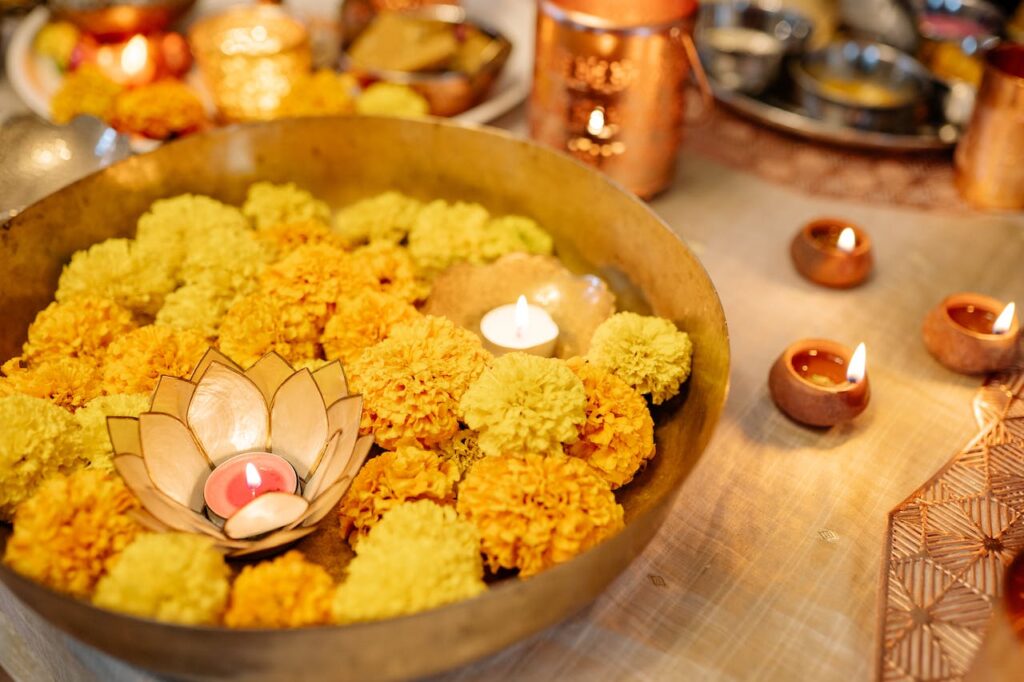
Introduction to Diwali
Diwali, also known as Deepavali, is one of the most eagerly awaited festivals in India. It is a celebration of light and joy that marks the victory of good over evil. Diwali is not just a religious festival, but a cultural extravaganza that brings together people from all walks of life to celebrate and share happiness. The festival is celebrated with great enthusiasm and fervor by Hindus all over the world. In this article, we will dive deep into the rich cultural significance of Diwali and explore the various aspects that make it such a special occasion.
History and significance of Diwali
The history of Diwali dates back to ancient times and is filled with fascinating legends and stories. One of the most popular stories associated with Diwali is the return of Lord Rama to Ayodhya after his victory over the demon king Ravana. The people of Ayodhya welcomed him by lighting thousands of lamps, symbolizing the triumph of light over darkness. This tradition continues to this day, with people lighting earthen lamps called diyas to illuminate their homes and surroundings during Diwali.
Diwali traditions and customs
Diwali is a time for families to come together and celebrate. One of the most important customs during Diwali is the cleaning and decorating of homes. It is believed that Goddess Lakshmi, the goddess of wealth and prosperity, visits homes that are clean and beautifully decorated. Rangoli, a decorative art form using colored powders, is also a common sight during Diwali. It is believed to bring good luck and ward off evil spirits.
Another important tradition during Diwali is the exchange of gifts. People exchange sweets, dry fruits, and other special Diwali treats with their loved ones as a gesture of love and affection. It is also common to give new clothes and jewelry to family members, symbolizing a fresh start and prosperity for the coming year.
Diwali preparations and decorations
In the weeks leading up to Diwali, households are abuzz with preparations for the festival. Cleaning, painting, and renovating homes are common activities during this time. People also engage in shopping for new clothes, jewelry, and household items. Markets are filled with vibrant displays of Diwali decorations, such as colorful lanterns, fairy lights, and decorative candles.
One of the most important decorations during Diwali is the Rangoli. It is created using colored powders, rice, or flower petals, and is considered a form of art. Rangolis are often intricate and beautiful, with various patterns and designs. They are believed to welcome Goddess Lakshmi into the home and bring good luck and prosperity.
Diwali delicacies and festive recipes
No festival in India is complete without delicious food, and Diwali is no exception. Diwali delicacies vary from region to region, but some common treats include sweets like ladoos, barfis, and jalebis. Savory snacks like samosas, pakoras, and mathris are also popular during this festive season. Families often come together to prepare these special dishes, sharing laughter and joy in the kitchen.
One of the most famous Diwali sweets is the traditional Indian dessert called “Gulab Jamun.” These soft and spongy dumplings are made from khoya (reduced milk) and soaked in a sugar syrup infused with rose water and cardamom. They are a true delight for the taste buds and are often served warm, garnished with nuts.
Diwali shopping and gifting ideas
Diwali is a time of giving and receiving gifts. It is considered auspicious to exchange gifts during this festival, as it symbolizes the sharing of love and blessings. When it comes to Diwali shopping, there are endless options to choose from. Traditional Indian clothing like sarees and kurta-pajamas are popular choices. Home decor items, such as wall hangings, idols, and decorative lamps, are also in high demand. In recent years, eco-friendly and sustainable gifts have gained popularity, reflecting a growing consciousness towards the environment.
Diwali celebrations around the world
Diwali is not only celebrated in India but also in various other parts of the world. The Indian diaspora, living in countries like the United States, Canada, the United Kingdom, and Australia, celebrate Diwali with great enthusiasm. In many cities, Diwali is marked by grand firework displays, cultural performances, and community events. These celebrations bring people of different cultures and backgrounds together to experience the beauty and vibrancy of Diwali.
Diwali 2023: Dates and important rituals
Diwali is celebrated on different dates each year, according to the Hindu lunar calendar. In 2023, Diwali will be celebrated on November 10th. The festival spans over five days, with each day holding its own significance. The main day of Diwali falls on the third day, which is known as “Lakshmi Puja.” On this day, families worship Goddess Lakshmi and Lord Ganesha, seeking their blessings for wealth, prosperity, and good fortune.
Tips for a safe and eco-friendly Diwali celebration
While Diwali is a time of joy and celebration, it is important to ensure that the festivities are safe and eco-friendly. The use of firecrackers during Diwali has been a cause for concern due to air and noise pollution. As an alternative, one can opt for eco-friendly firecrackers. It is also advisable to be cautious while lighting diyas and candles, ensuring they are placed on stable surfaces away from flammable materials.
Conclusion
Diwali is a festival that is deeply rooted in Indian culture and holds immense significance for millions of people around the world. It is a time of joy, love, and togetherness, where families come together to celebrate and create lasting memories. The festival is not only about lighting lamps and bursting firecrackers but also about spreading happiness and goodwill. As we prepare for Diwali 2023, let us embrace the rich cultural traditions and celebrate this festival of light with reverence and joy.
